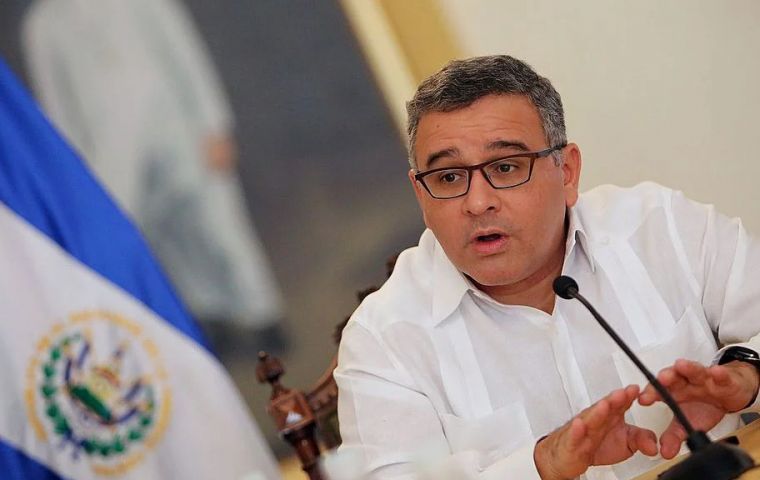MercoPress. South Atlantic News Agency
Former Salvadoran president convicted in absentia
 Funes has had Nicaraguan citizenship since 2019
Funes has had Nicaraguan citizenship since 2019 A Salvadoran court Monday sentenced former President Mauricio Funes (2009-2014) to 14 years in prison for his alleged negotiations with criminal gangs. Funes, currently living in Nicaragua, got 8 years for illicit groupings and 6 years for breach of duty. Nicaragua gave him citizenship in 2019.
Former Justice and Security Minister David Munguía Payés “received a sentence of 18 years in prison,” the Attorney General's Office (FGR) reported on Twitter.
Funes, who was tried in absentia following a legal reform that allows it, became the second former Salvadoran democratic president to be convicted. In 2018, former President Tony Saca (2004-2009) was sentenced to 10 years in prison after pleading guilty to diverting more than US$300 million in state funds.
Retired General Munguía Payés was found guilty of the same charges but got an additional 4 years in prison for arbitrary acts. Munguía Payes said after the sentencing that the trial was full of irregularities. “I consider myself a political prisoner, for only having served as the ex-minister of President Funes. They accuse me of a series of accusations that have no foundation,” he said.
Between 2012 and 2014, the Mara Salvatrucha (MS13), Barrio 18, and other minority gangs maintained an armistice to reduce homicide figures backed by the Funes government. According to the prosecution, this truce entailed favors for these gangs, such as prison benefits for imprisoned leaders, public investment in communities under their control, and a reduced presence of security forces in specific neighborhoods.
In 2016, Funes denied that his government had given perks to imprisoned gang leaders in exchange for a decrease in homicides. However, in the trial against the so-called truce operators, retired General Munguía Payés, testified as a witness and changed the official version by stating that the armistice was a “pacification” policy. In June 2019, an anti-mafia court sentenced seven operators of the controversial gang truce to between two and three years in prison.
Current President Nayib Bukele has been accused of engaging in the same sort of deeds. Imprisoned gang leaders were allegedly given privileges in exchange for slowing down killings and for giving political support to Bukele’s party. Former Attorney General Raúl Melara had said he would investigate the allegations but was ousted before he could do so. The truce broke down when the gangs killed 62 people in a single day in March 2022. Bukele is currently waging an all-out war against the gangs.




Top Comments
Disclaimer & comment rulesCommenting for this story is now closed.
If you have a Facebook account, become a fan and comment on our Facebook Page!